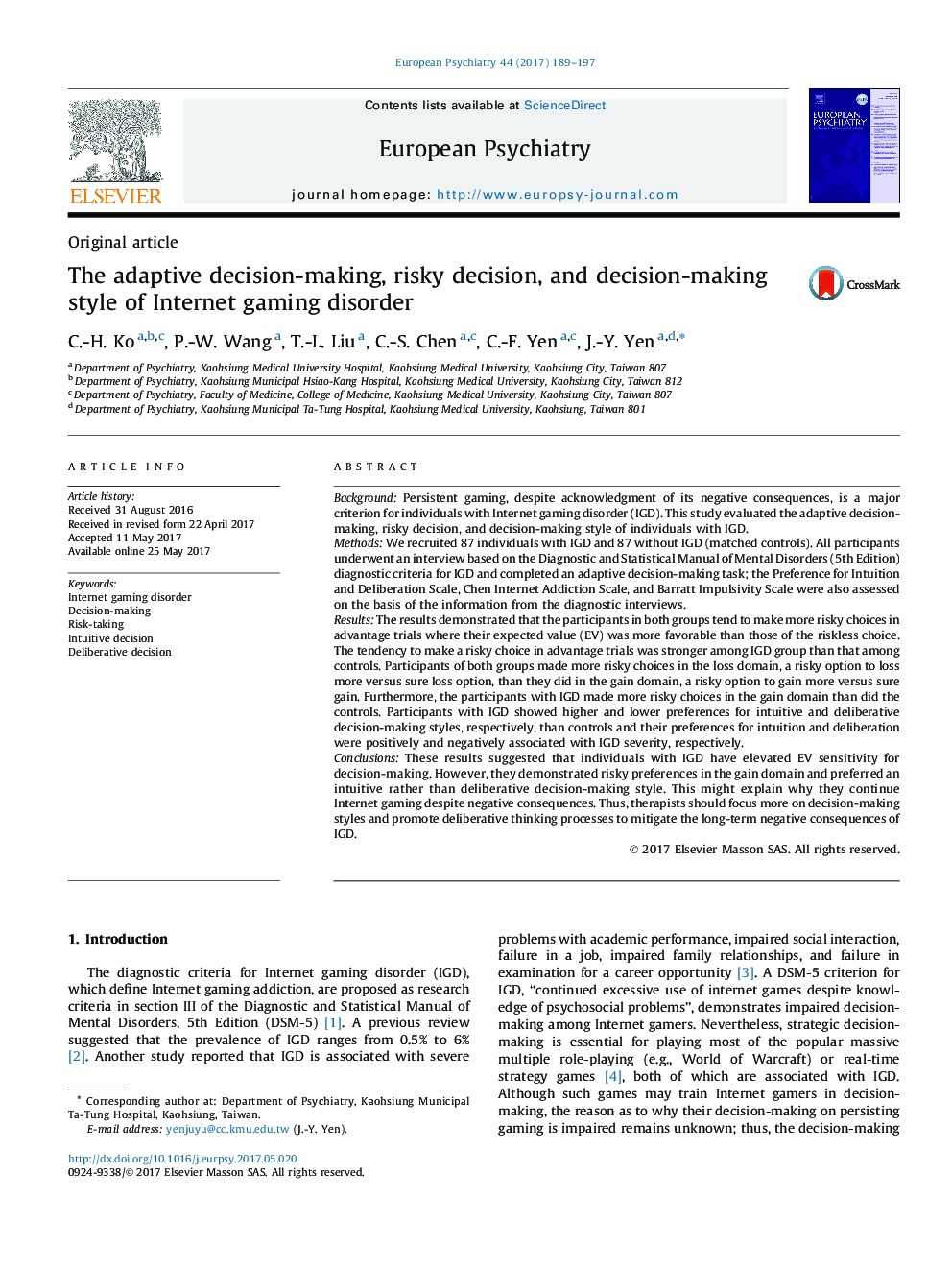| کد مقاله | کد نشریه | سال انتشار | مقاله انگلیسی | نسخه تمام متن |
|---|---|---|---|---|
| 5721408 | 1608046 | 2017 | 9 صفحه PDF | دانلود رایگان |
BackgroundPersistent gaming, despite acknowledgment of its negative consequences, is a major criterion for individuals with Internet gaming disorder (IGD). This study evaluated the adaptive decision-making, risky decision, and decision-making style of individuals with IGD.MethodsWe recruited 87 individuals with IGD and 87 without IGD (matched controls). All participants underwent an interview based on the Diagnostic and Statistical Manual of Mental Disorders (5th Edition) diagnostic criteria for IGD and completed an adaptive decision-making task; the Preference for Intuition and Deliberation Scale, Chen Internet Addiction Scale, and Barratt Impulsivity Scale were also assessed on the basis of the information from the diagnostic interviews.ResultsThe results demonstrated that the participants in both groups tend to make more risky choices in advantage trials where their expected value (EV) was more favorable than those of the riskless choice. The tendency to make a risky choice in advantage trials was stronger among IGD group than that among controls. Participants of both groups made more risky choices in the loss domain, a risky option to loss more versus sure loss option, than they did in the gain domain, a risky option to gain more versus sure gain. Furthermore, the participants with IGD made more risky choices in the gain domain than did the controls. Participants with IGD showed higher and lower preferences for intuitive and deliberative decision-making styles, respectively, than controls and their preferences for intuition and deliberation were positively and negatively associated with IGD severity, respectively.ConclusionsThese results suggested that individuals with IGD have elevated EV sensitivity for decision-making. However, they demonstrated risky preferences in the gain domain and preferred an intuitive rather than deliberative decision-making style. This might explain why they continue Internet gaming despite negative consequences. Thus, therapists should focus more on decision-making styles and promote deliberative thinking processes to mitigate the long-term negative consequences of IGD.
Journal: European Psychiatry - Volume 44, July 2017, Pages 189-197
